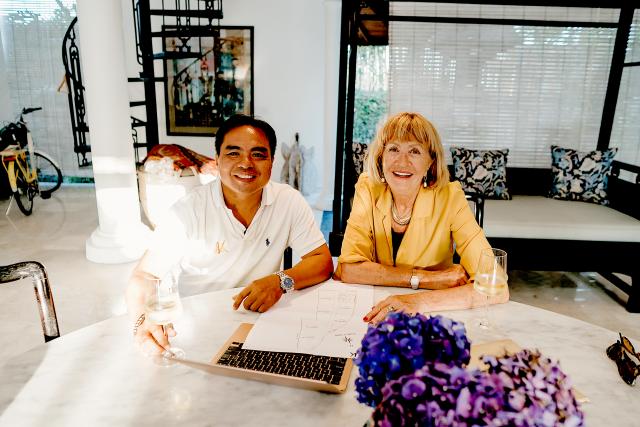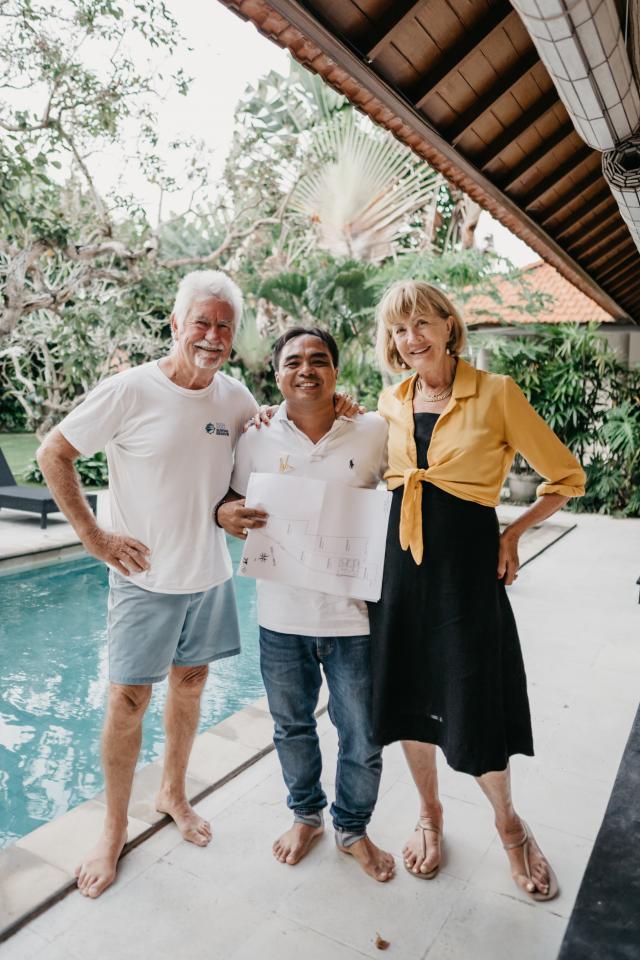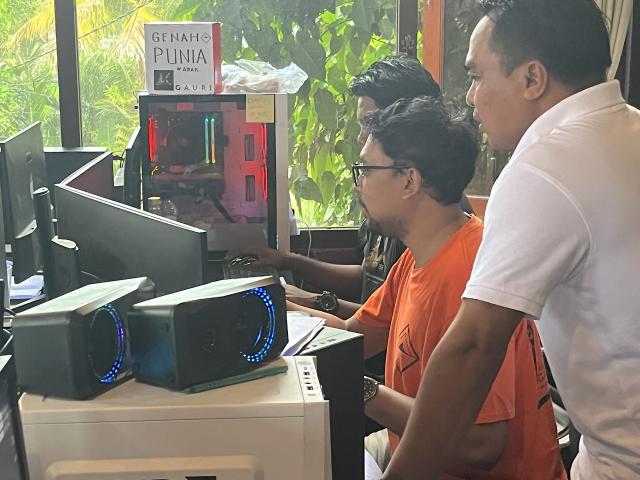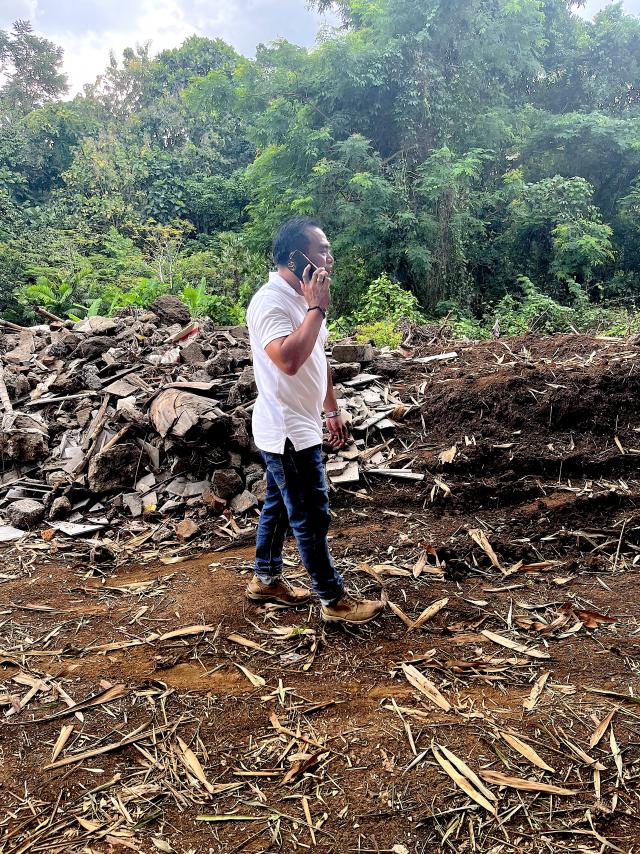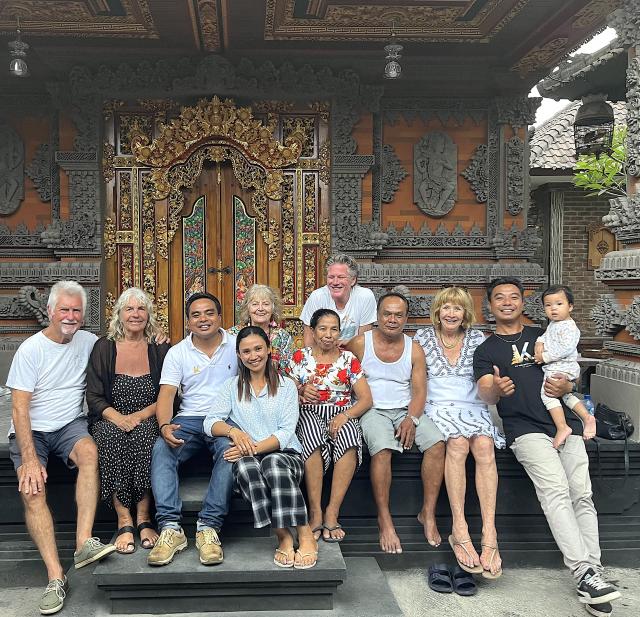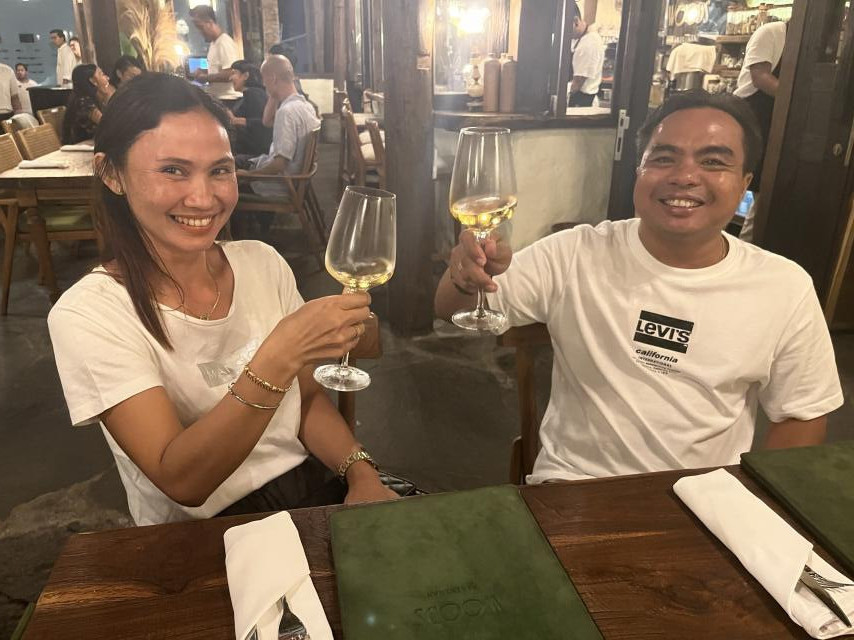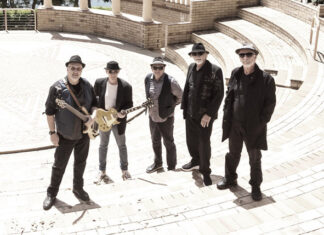It’s a day that is forever embedded in the family history of Wayan Agus Parwita of Cepaka, Bali – 14 November 2019.
Having received the joyous news that his young daughter Geby was finally rid of a life-threatening disease, he was to sign the registration papers for his construction business, CV Kori Dewata Karya, finally legitimising the company he had been building for nearly a decade, and taking advantage of President Joko Widodo’s tax amnesty to create a solid foundation for the future of he and wife Made and their three children.
“This is for Geby, for my family,” he told the notary as he put the pen down.
Four months later the island of Bali was in total Covid-19 lockdown, the tourists had gone and business was grinding to a halt.
Kori Dewata still had ongoing construction projects but most of Wayan’s labour force was Javanese and they had all gone home for Ramadan and couldn’t get back into Bali.
It was a dreadful situation for the island’s economy and for families suddenly without work, without compensation and with very little village land left undeveloped where they might grow their own food.
Wayan Agus was fearful of the future but not without hope. After all, he had been here before.
When Wayan’s grandfather died unexpectedly in the mid-1960s, his dad, I Nyoman Suwita, was just 14. Nyoman and his older brother had to fish for eels in the rice paddies at night, then sell them in the markets each morning before school to put rice on the table for the family.
The older brother went to work in a neighbour’s field after elementary school, giving his younger brother, Nyoman Suwita, the opportunity to continue through high school. It was a huge sacrifice, but it enabled Nyoman to complete nine years of school, and study wood carving for the final three.
Nyoman was a good carver and he found plenty of work locally, before being hired to work on major temple constructions in Java.
When he returned he had enough money to buy some more land to expand the family compound in the village of Cepaka, marry his neighbour, Ni Luh Suji, and start a family.
The family was upwardly mobile, there was no doubt about that, but Nyoman was still a little envious when he saw that a friend, also a carver, had made enough money selling his carvings at a tourist hotel in Sanur to afford a second-hand motor bike.
Says Wayan Agus: “He told my father he should try to sell his wood carvings to foreigners, because there were more tourists every year in Sanur and Kuta. So my father started to ride his pushbike to a hotel in Legian where he would sell his carvings. He didn’t speak any English but his friend told him to buy a calculator so he could show the tourists how much he wanted for each piece. Soon he had enough money to buy a 10-year-old Yamaha P-70 motor bike.”
By the time Wayan was old enough to learn carving himself, his father had moved to a big new hotel in Seminyak, and set Wayan up in another hotel every afternoon after school.
“I would come home from school at 1pm, have a rest for two hours then go to the hotel at 4pm, taking my books so I could do my homework when there were no customers. That was my start in business.”
Nyoman invested his savings in motor bikes that he could rent to tourists, and by the time Wayan went to university to study tourism and hospitality, he had worked out that he would need to buy two more bikes and get them working in order to put his younger son, I Made Dwipayana, through chefs’ school.
The family still tended pigs and lived at the edge of a rice field, but in the space of a generation they had successfully made the transition from subsistence agriculture to tourism entrepreneurs.
Then the bombs went off in Kuta.
A decade after the first Bali bombings that killed more than 200, Wayan Agus walked me down the lane where the Sari Club once stood to the site of the Coral Reef restaurant, virtually next door, where he had been employed on the night of the tragedy.
I’d met him a couple of years earlier when he started working as a driver for our close friend Sue, an Australian businesswoman, and he was on loan to me while I researched a book about Bali. That was when our friendship really started. He might have been my driver at the beginning, but by the time we finished, his cultural advice, navigation, interpreting skills and canny sense of what made a good story almost qualified him as the co-author.
On the night of the bombings, there was a Japanese wedding at the Coral Reef and Wayan, as night manager, got to close up early and ride his motor bike home.
He got halfway to Cepaka before the skies lit up over Kuta and the earth shook all over South Bali. No tourists, no work. Wayan eventually found a job on the Carnival Cruise Line, doing seven-month stints without break in the Caribbean. He was paid $US70 a fortnight and had to buy his own airline tickets to and from the departure port.
The cabin boys worked six hours every morning, then four or five at night, seven days a week, but they received free meals and a bed, and the passengers were generous tippers.
Soon Wayan was regularly sending home money to the compound.
Between his fourth and fifth contracts with Carnival Cruises, Wayan fell in love with Made, and missed her so much that he jumped ship when the cruiser made port, quit his job and flew home. Fortunately, the tourist economy at home had finally picked up, and then, in 2005, terrorists struck again.
Twice a survivor, in 2020 Wayan Agus kept working his contact book of expats and slowly villa construction projects came his way. But with the traditional Javanese labour unavailable, he had to build a team again, and he started in his village of Cepaka, a pretty little collection of compounds by a creek about 10 minutes inland of the tourist area of Canggu and home to about 800 families.
Because of its proximity to the tourist centres, most of the villagers had worked in tourism and related services, jobs that no longer existed.
They were subsisting on the food they could grow around the village until Wayan decided to turn every able-bodied man and woman into a construction worker.
His Uncle Nyoman, a delightful man in late middle age who picked us up from the airport a week or so ago, thought working as a labourer was a huge joke, but he did it.
“The work saved the village,” he told us when he’d finished laughing.
“I was able to employ 100 labourers right away,” Wayan, now 43, tells me.
“Kori Dewata has a uniform for its workers, red and yellow, and all through the village all you saw was that!”
We are having a conversation over a glass of wine in the poolside lounge of Umah Kembar, the first villa project Wayan took on for our friend Sue, now his business partner, all those years ago.
Never one to miss an opportunity, Wayan has brought along a videographer to capture the interview for Kori Dewata’s website and social media.
He waves his arm expansively and says: “When we started on this construction, my first, nobody working on it, the architect, the builder, the plumber, none of them spoke any English, and they didn’t use digital communications, so I had to be the communicator and I’d talk to the client using Skype. I learnt how to be the middle man. The ham in the sandwich.”
He continues: “We were lucky also to have a relationship with a college so we could build local management by using students while they worked towards their degrees. We have about 30 in the management team now and 10 of them are from Cepaka.
“The building subcontractors currently number about 150 to 200, and they all work on a system which pays for production targets and volume rather than hours worked, so the more effective you work, the more you make.”
Right now, Kori Dewata has 10 construction projects in development across South Bali, stretching from Bingin on the Bukit Peninsula to Pererenan Beach, where we are sitting.
But the biggest project, soon to come on stream, marks a transition for the company from contract work to its own developments, and, fittingly, it’s happening in the village of Cepaka, where Wayan and his team will build an initial eight country retreat villas with another 12 slated for the future.
I think it’s fair to say that in business our friend Wayan Agus is the full sandwich these days, and we couldn’t be prouder of him.

